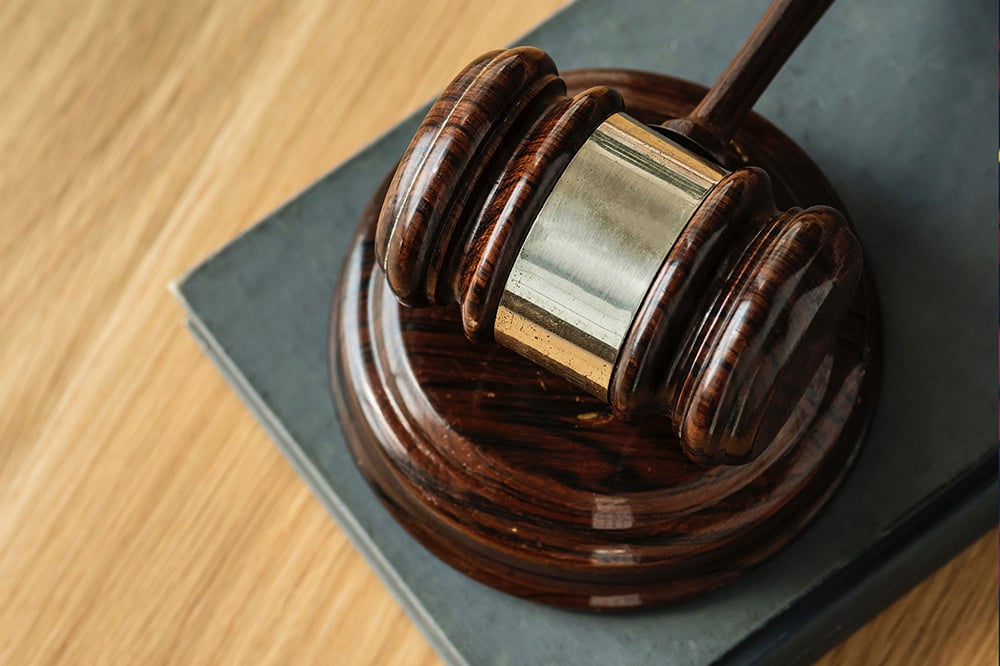U.S. Current Trend: Strategic Lawsuits Against Public Participation
Privatizing Censorship
Strategic lawsuits against public participation, or SLAPPs, are a type of lawsuit that impedes the ability of civil society to advocate on issues of public importance. Critics call SLAPPs a form of privatized censorship, since they tie up activists in court and, in so doing, seek to repress freedom of speech. SLAPPs are common in the United States but have become a worrying trend in the closing of civic space worldwide.

In May 2016, Resolute Forest Products, a Canadian logging company, brought a lawsuit for $240 million against the environmental organizations Greenpeace and Stand. Resolute accused the two organizations of violating the Racketeer Influenced and Corrupt Organizations (RICO) Act, a U.S. federal law that is commonly used to prosecute members of organized crime. Resolute argued that in opposing its logging in Canada’s arctic forests, Greenpeace and Stand had promoted “sensational misinformation untethered to facts or science,” defamed Resolute, and conspired to commit extortion. Resolute also claimed that the organizations had conspired to defraud their own donors.
In October 2017, a federal judge dismissed Resolute’s case with the finding that the defendants’speech “constituted the expression of opinion, or ‘different viewpoints that [are] a vital part of our democracy.’” However, Resolute immediately filed an amended complaint, and the judge’s decision on the follow-up charges is expected soon.
Many civil society organizations have pointed to the Resolute suit as a classic SLAPP case, in which litigation is used to harass or intimidate nonprofit organizations, journalists, protestors, and other critics into silence. But while SLAPPs typically include accusations of defamation, invasion of privacy, or interference with contracts, the use of RICO charges in SLAPP cases represents a new and troubling development.
In August 2017, Energy Transfer Partners, a partner in the controversial Dakota Access pipeline in the central United States, filed a $900 million suit against Greenpeace and Earth First, two of many civil society organizations that had helped organize protests of the pipeline’s construction. The complaint includes not only accusations of defamation and assertions that the defendants sought to trick funders into giving them money by creating a flood of publicity, but also RICO charges and claims that the defendants engaged in “terrorism” and damaged Energy Transfer Partners’business and financial relationships. A federal judge has yet to rule on the case.
While there is no federal anti-SLAPP legislation in the United States, state laws limiting SLAPPS do exist. According to the Public Participation Project, a group that works to pass federal anti-SLAPP legislation, thirty-one states have adopted anti-SLAPP legislation. For example,California, the state in which the Resolute case is being litigated, has an anti-SLAPP law, which was cited by the judge in dismissing Resolute’s claim of defamation. However, the judge found that California’s anti-SLAPP law does not apply to charges under RICO, a federal statute.
Today, SLAPPs are a concern not only in the United States, where they have a long history, but elsewhere in the world. In 2017, the United Nations special rapporteur on the rights to freedom of peaceful assembly and of association released an info note describing the worldwide increase in SLAPPs, citing as examples SLAPP-like suits in India, Canada, the Philippines, and South Africa.
More information about SLAPPs may be found on the website of Protect the Protest, a taskforce of nonprofit organizations that monitor and fight back against SLAPPs.
Last updated: November 2018
For more information contact: Nick Robinson at nrobinson@icnl.org
To subscribe to US Program email updates, click here.
Sign up for our newsletters
Sign up